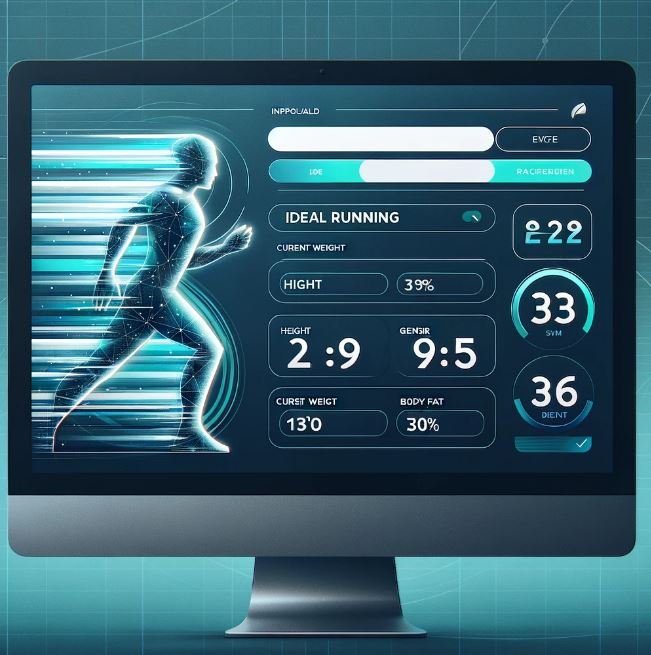When striving to optimize running performance, understanding and achieving your ideal running weight is crucial. The Ideal Running Weight Calculator emerges as a sophisticated tool designed to tailor weight management and performance optimization strategies specifically for runners. This article will delve into how the calculator works, its benefits, and practical tips to effectively utilize the tool, complemented by real-life case studies.
Ideal Running Weight Calculator
What is Ideal Running Weight?
Ideal Running Weight is the optimal body weight at which a runner performs best, balancing muscle mass, energy levels, and fat proportion. This weight varies for each individual, influenced by factors such as height, gender, body fat percentage, and the type of running event. By achieving this weight, runners can enhance their efficiency, speed, and overall performance.

How the Ideal Running Weight Calculator Works
The Ideal Running Weight Calculator uses a scientifically backed formula to calculate the optimal weight for runners based on several personal health metrics. Here’s a brief outline of how it operates:
- Input Personal Data: Users input data including current weight, height, gender, body fat percentage, and the type of event they are training for.
- Calculation: The tool processes this data using a formula that considers the physiological demands of running and the impact of weight on running performance.
- Results: It outputs the ideal running weight, how your current weight compares, and the potential improvements in pace and efficiency you could achieve by reaching your ideal weight.
Benefits of Knowing Your Ideal Running Weight
Understanding your ideal running weight offers several benefits:
- Enhanced Performance: Lower excess weight means less energy spent per mile, allowing for faster and longer runs.
- Improved Health: Aligning with your ideal weight reduces the risk of injuries and health issues associated with carrying unnecessary weight.
- Customized Training: Knowing your optimal weight helps tailor training and nutrition plans to ensure you are in peak condition for race day.
Practical Tips for Using the Calculator
To get the most out of the Ideal Running Weight Calculator, consider the following tips:
- Accurate Inputs: Ensure all data entered is as accurate as possible. Consider getting a professional body fat percentage measurement for best results.
- Regular Updates: As you train and your body changes, regularly update the information in the calculator to keep your goals and strategies aligned with your current state.
- Holistic Approach: Combine the insights from the calculator with a balanced diet and proper training regimen. Consider consulting with a dietitian or a coach to enhance the effectiveness of your plan.
Case Studies
scenario 1: Marathon Runner
- Initial Weight: 180 lbs
- Ideal Weight: 160 lbs
- Outcome: Improved marathon time by 15 minutes after reaching ideal weight.
Case Study 2: 5K Competitor
- nitial Weight: 150 lbs
- Ideal Weight: 140 lbs
- Outcome: Increased speed and reduced post-race recovery time.
First-Hand Experience
“As a long-distance runner, finding my ideal weight using the calculator made a significant difference. Not only did my pace improve, but I also feel lighter and more energetic during runs,” shares John, an amateur marathon runner.
Conclusion
The Ideal Running Weight Calculator is more than just a digital tool; it is a comprehensive approach to understanding and achieving the physical conditions optimal for your running success. By integrating the insights gained from this calculator into your training and nutrition plans, you can unlock your full potential as a runner.
Achieve your best race yet by starting with the right weight.
